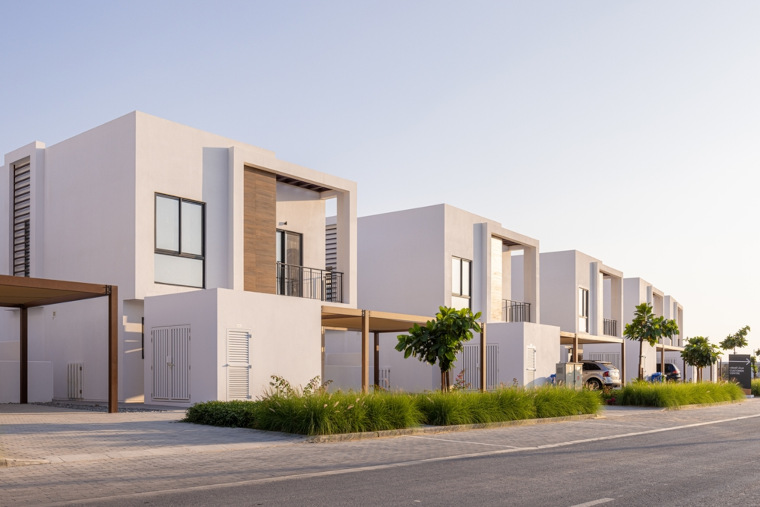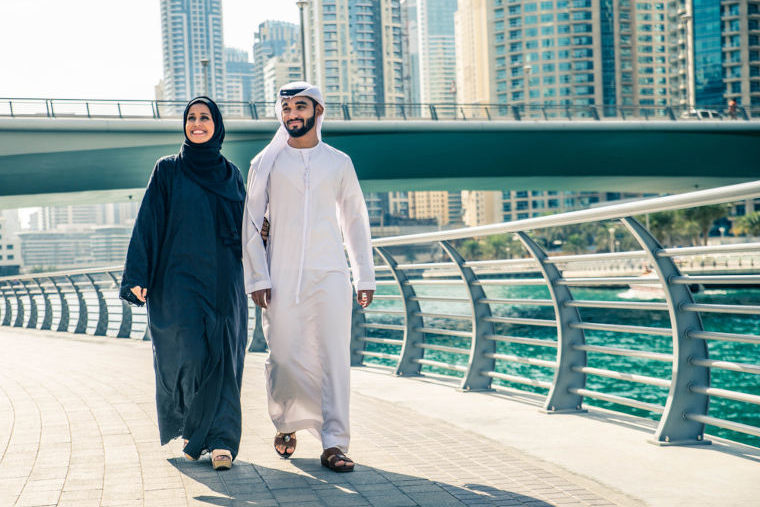

15.10.2025
1208
What is it about? Usufruct, leasehold, freehold and musataha are four different types of property rights in the UAE, each with its own characteristics and advantages. Full ownership rights can be obtained either by UAE citizens or by individuals who have invested at least $1 million (in some regions).
What to pay attention to? Foreigners can also acquire property with leasehold ownership rights. This form of ownership implies the possibility of long-term rental, whilst restricting the owner in transactions involving change of ownership.
Today, citizens of other countries can acquire real estate in Dubai, but not that long ago it was different. Dubai is the first emirate in the UAE where foreigners can purchase property with ownership rights.
The decree issued in 2002 contains rules for foreign investors purchasing Dubai real estate. According to this decree, citizens of other countries can acquire investment property in the emirate with full ownership rights. This is called freehold.
Citizens of the United Arab Emirates and GCC states have no territorial restrictions, meaning they have the right to acquire full ownership of properties in all areas of the emirate. If you are a resident of a country that is not part of the Gulf countries or the UAE, you can only purchase property in designated freehold zones.
The list of these zones is specified in Article 3 of Regulation No. 3 of 2006 on determining territories for non-citizens to purchase real estate in Dubai. There is a list of lands where foreign citizens have the right to buy property. The Ruler of Dubai periodically reviews the number of these regions and their territory.
Freehold implies exclusive ownership rights to real estate in the UAE. The buyer of the property can use it at their discretion, sell, gift, rent or bequeath it.
It is important to remember that if the property purchased by a person costs more than $272,000 (1 million dirhams), then they can become the holder of a long-term visa in Dubai. The opportunity to obtain UAE residency and live in the territory of the state is a major advantage of freehold.
In 2002, Sheikh Mohammed Bin Rashid Al Maktoum issued an order allowing citizens of any country to acquire property in Dubai with full ownership rights.
In 2006–2008, several decrees were issued that allowed the approval of a list of free zones in Dubai, Ras Al Khaimah, Umm Al Quwain and Ajman. In 2019, freehold for foreign citizens also became available in Abu Dhabi. In these regions, special zones are designated where freehold property can be purchased not only by citizens of the United Arab Emirates but by foreigners as well.
There is an opinion that even if you bought property in a free zone, you do not have rights to the plot of land on which the property stands. This opinion is incorrect.
The term “freehold” refers to unlimited ownership rights to the property itself. The plot in such a situation is also considered the buyer's property. This does not depend on what you bought — a house, a flat or a townhouse.
However, in the United Arab Emirates, rights to the property and to the plot of land are legally separated. These rules apply to Abu Dhabi and Dubai and are regulated by Article 8 of the Dubai General Regulation (of 2010) and Article 61 of Abu Dhabi Law No. 3 (of 2015).
Foreign investors often believe that the price of freehold properties is much higher than leasehold, but the price depends on the status of the territory, not the form of ownership.
 Image source: BASHIR LUKYAMUZI / shutterstock.com
Image source: BASHIR LUKYAMUZI / shutterstock.com
Thus, in Dubai, properties that are particularly attractive to foreign citizens are located in the most fashionable areas and on the coast. Understandably, the price for such properties is higher. In elite locations, it would be foolish to expect a low price. For example, square metres located near the Burj Khalifa skyscraper cost approximately $9,000–10,000.
Often foreigners worry about property purchased in another country. If it is used, for example, as a place for summer holidays, then it remains vacant for six or more months per year. Therefore, there is anxiety about its safety, even if insurance is arranged.
But it is important to remember that the Emirates is one of the safest countries, where no one can be on private property without permission. Therefore, one should not believe the tall tales that neighbours in an apartment building can enter your territory without your permission, for example, due to repairs. This is a myth and, moreover, it is a crime.
Only the police with a warrant have the right to enter an apartment or house for a search, but police in any other country have the same right.
Places popular with tourists (Dubai, Sharjah, Abu Dhabi) are constantly working to expand the area of free zones. Developers are launching many projects specifically designed for foreign investment. The main value of freehold for foreign citizens is the ability to transfer purchased property by inheritance.
95% of Dubai's territory is a freehold zone. Currently, even the emirate of Sharjah with its strict regulations is removing restrictions and allocating territories for freehold development because the rulers understand the need to attract foreign investment to the country.
Leasehold is the possession of real estate on the rights of long-term lease. The maximum period of use is 99 years, after which the owner or developer redeems the right to dispose of the property.
Leasehold rights can be inherited and extended upon expiration. For extension, a re-signing of the contract is performed. If you plan to resell the property, this procedure should be agreed upon with the owner with whom you arranged the lease ownership, and certain mandatory documents should be signed.
This ownership right is not considered exclusive and cannot be arranged in every territory. Leasehold, like freehold, according to DLD policy, is available in free zones. It is provided to foreign enterprises registered in the United Arab Emirates, or citizens of other countries or GCC states.
Leasehold is a type of property ownership that implies non-exclusive ownership rights. Such a form of authority is used to support local residents. For example, UAE citizens pay lower rates for utilities, take mortgages and construction loans at a lower interest rate, and receive monetary payments from the state.
 Image source: oneinchpunch / shutterstock.com
Image source: oneinchpunch / shutterstock.com
For citizens of other countries, special zones have been formed in the UAE where property can be purchased with full ownership rights (freehold).
The UAE authorities have introduced different types of real estate ownership permits, which provide certain restrictions. They are called “usufruct” and “musataha” and are variants of leasehold.
This is a property ownership right that allows the use of property but does not permit changes to its original condition.
According to such an agreement, foreign citizens can use the property, which is owned by another person, for no more than 99 years. Usufruct property can be considered as a lease for long-term investments.
This is an extended version of usufruct, which establishes the period of ownership rights for no more than 50 years. During this time, the holder of musataha owns all the real estate located on the plot of land. This type of ownership provides the opportunity to build new facilities or complete those that already exist on the leased plot.
The right of Musataha is common in Abu Dhabi. Both usufruct and musataha can be used by foreign investors, both by legal entities registered in the United Arab Emirates, and by individuals.
Let's consider the main advantages and negative aspects of the main and additional forms of property rights in the Emirates.
The advantage of freehold is its openness to visitors from other countries and the possibility to obtain a long-term UAE residency visa through it. At the same time, a foreign citizen is granted full exclusive ownership rights to property located in a freehold zone.
Leasehold is not relevant for citizens of other countries who want to obtain unconditional ownership rights. This is because the contract term is limited to 99 years, whereas freehold is perpetual.
 Image source: fizkes / shutterstock.com
Image source: fizkes / shutterstock.com
The usufruct agreement is drawn up for a period of up to 99 years. It can be concluded by expatriates and foreign legal entities registered in the UAE and Gulf countries. The same category of persons can conclude a musataha agreement, but the time limitation will be 50 years.
In the Emirates, unlike other real estate markets, a very comfortable tax system is used for expatriates and investors. There are no direct taxes on property, income, or land ownership in the state.
Expenses are mainly related to indirect and one-time payments, which include transaction fees for the sale and purchase transaction (4%), and payment for DLD administration services (a certain percentage of the transaction amount). You also need to pay the developer for property maintenance, and the municipality for utilities and waste collection.
Yes, they have the right to obtain a mortgage or other loans from banks in the United Arab Emirates, provided that a down payment is made, which must be at least 20–25% of the loan amount. This deposit supplements the current payment expenses.
A mandatory condition is to have a UAE residency card, so it is easier to obtain a mortgage loan for the second and subsequent real estate properties.
In order to understand in which zone the property is located (freehold or leasehold), you need to visit the Dubai Land Department (DLD) website or get advice from a real estate agent. Remember that within leasehold territories there may be freehold areas that imply unconditional ownership rights.
For the proper execution of a real estate transaction and the prevention of negative consequences, it is necessary to understand the differences between leasehold, freehold and usufruct. If you are not sure which type of property right is suitable for you, consult with a real estate agent or lawyer.
Article header image source: Zivica Kerkez / shutterstock.com